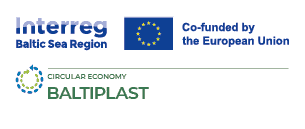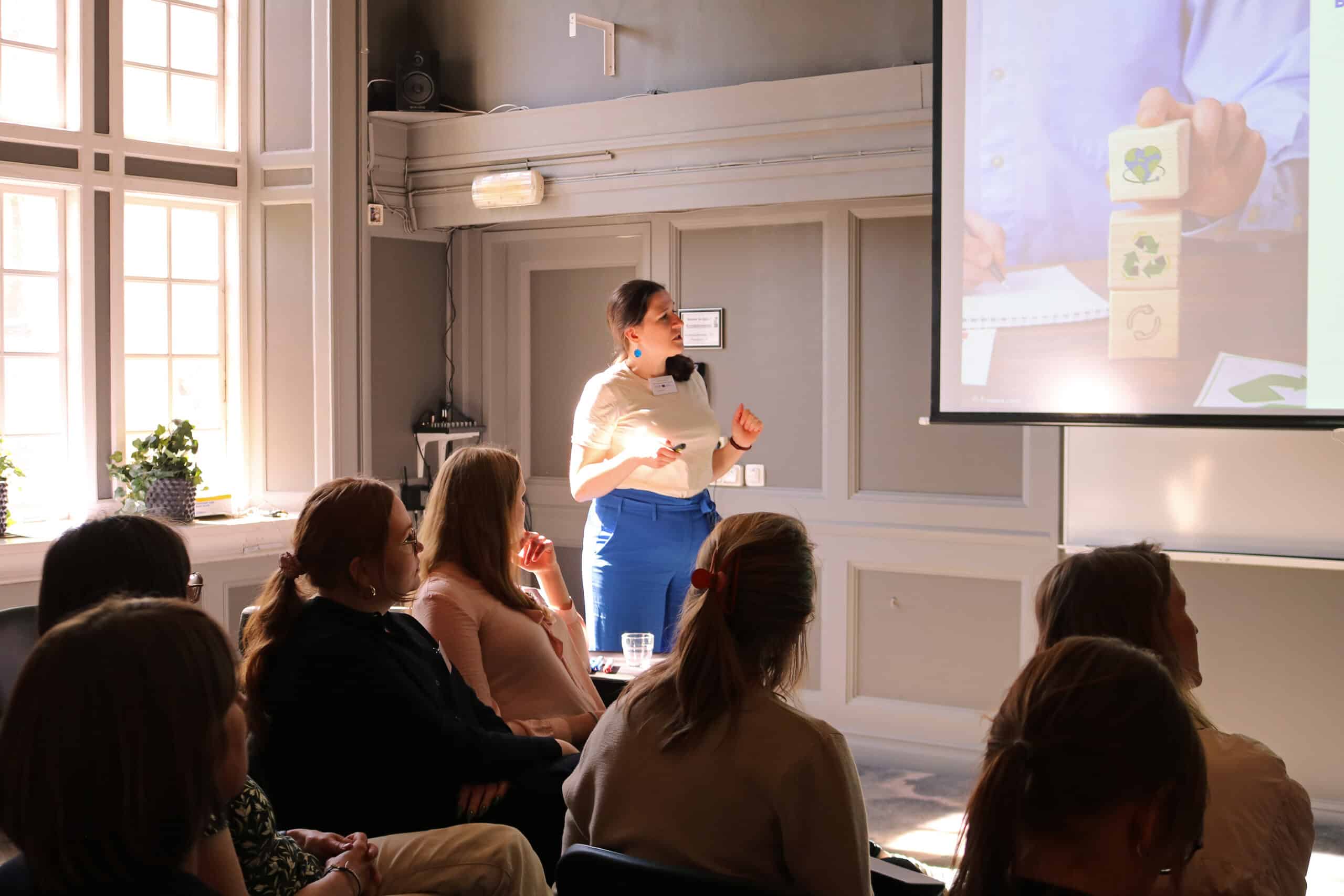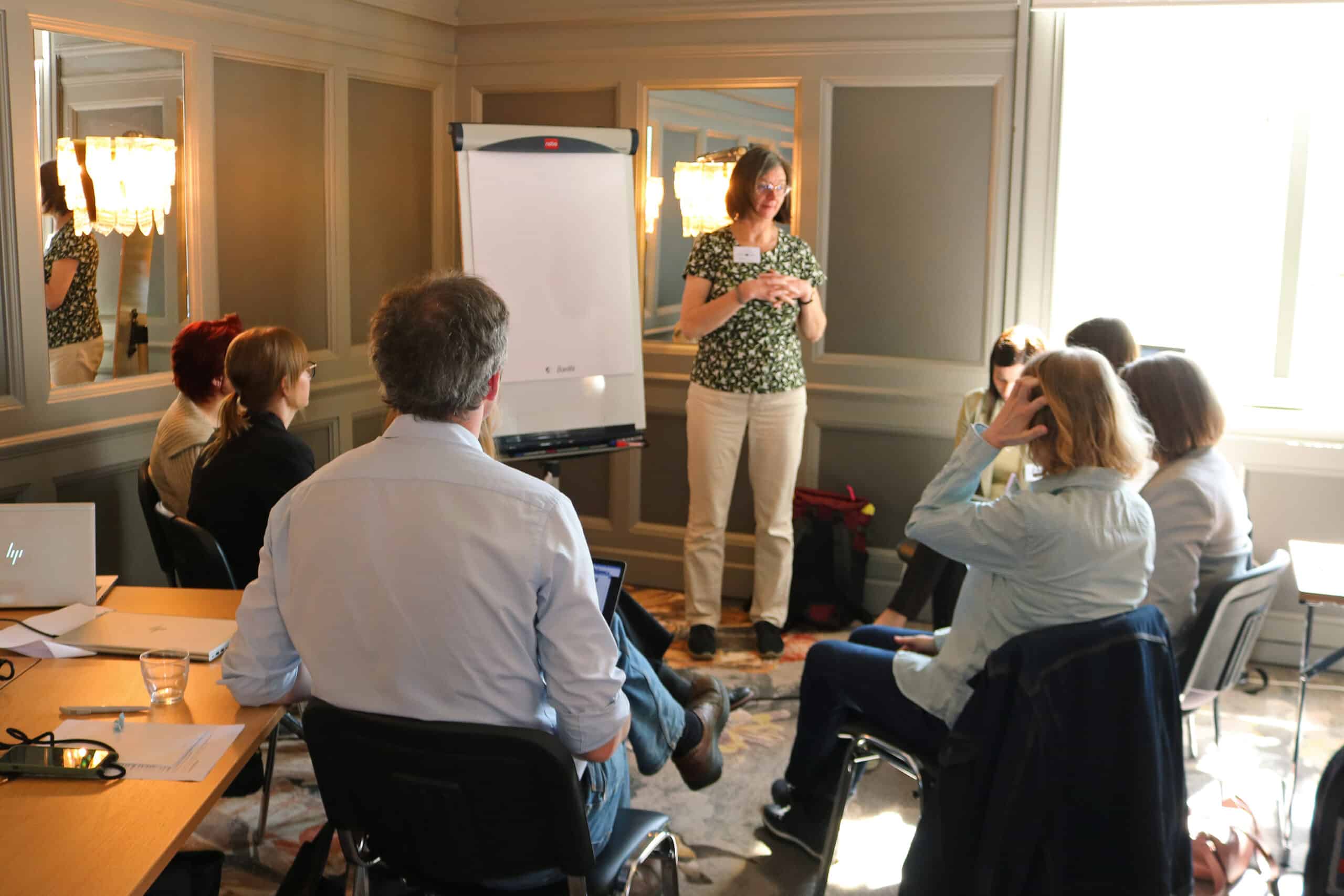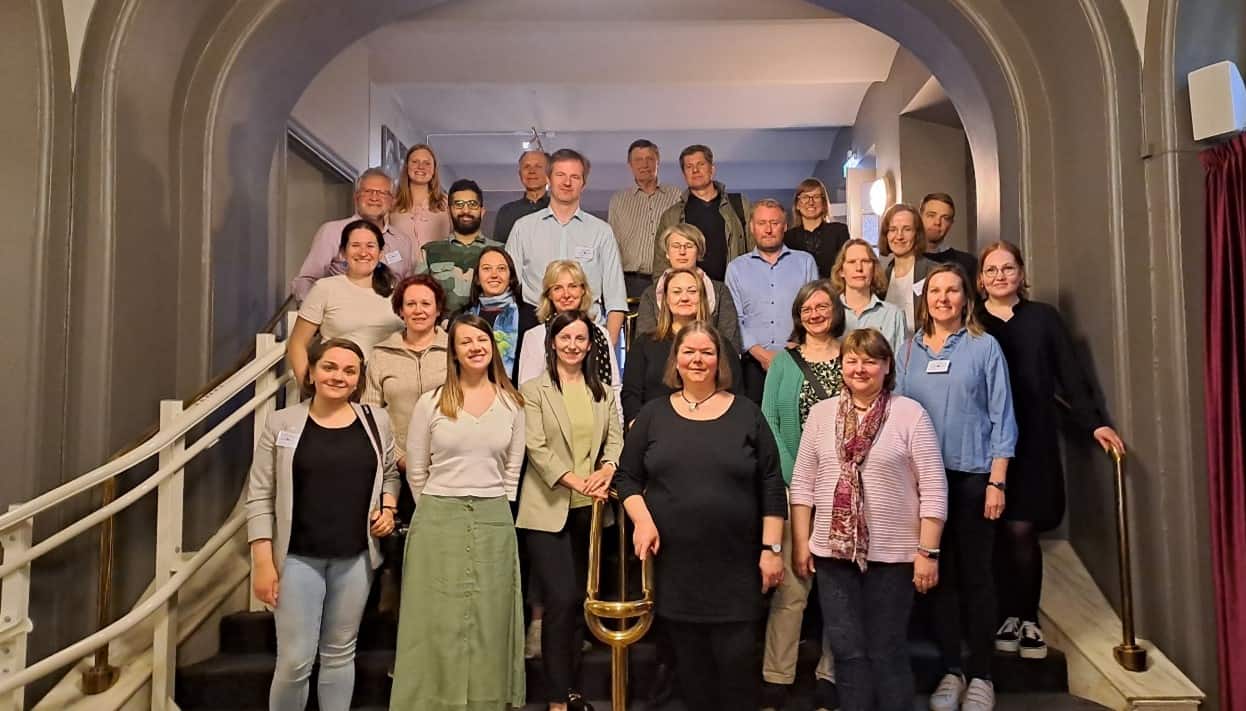
Empowering Change: The BALTIPLAST Team Unites to Combat Plastic Pollution
25 May 2023
On the first day of the event, after welcoming the partners and a short introduction, attention was drawn to the progress achieved so far in the project. In this regard, the highlights of Work Package 1 focused on preparing solutions for the second year of the project were presented amongst the findings of the benchmarking of best practices in the Baltic Sea Region. The benchmarking process was carried out in all the member countries by one appointed representative in each country. The collected data revealed measures on strategic, soft, technical and technological, and household-level for plastic waste prevention and reduction already in place in the respective countries. This meticulous evaluation provided valuable insights into existing practices, paving the way for informed decision-making and enhanced plastic waste management strategies in the region.
During the morning session, PP18 KuBuS presented the plastic inventory tool adapted for use in schools, municipalities, and businesses. This adaptable tool, developed in English, plays a critical role in evaluating the plastic waste stream generated by these entities. By employing a systematic approach, it enables stakeholders to identify the largest sources of plastic waste and offers valuable insights into potential reduction measures. Following the tool presentation, the project team divided into three working groups, each focusing on generating a pool of ideas for soft measures in plastic waste reduction. The first group, moderated by Heidrun Fammler (PP12, BEF-DE), concentrated on municipalities, exploring ways to implement effective measures in these settings. The second group, led by Eva Kruse (PP5, V-as), delved into strategies for schools to adopt. Lastly, the third group, guided by Johanna Gäbken (PP18 KuBuS), examined measures suitable for businesses.
This collaborative approach and focused idea-generation session aimed to foster innovative solutions and facilitate a comprehensive approach towards reducing plastic waste across different sectors. By addressing the unique requirements and challenges faced by schools, municipalities, and businesses, the project strives to make a significant impact in curbing plastic pollution.
In the afternoon session, the project participants established two working groups to intensify efforts towards effective plastic waste management. By operating in parallel, these two working groups aimed to utilize their respective areas of expertise and expedite progress in plastic waste management.
Led by Loreta Wustenberg (PP12, BEF-DE), the first working group concentrated on exploring household-level measures. This subgroup aimed to identify practical approaches that individuals can adopt to reduce plastic waste in their daily lives. By focusing on the household level, the group sought to empower individuals with actionable strategies and encourage sustainable habits.
Simultaneously, under the coordination of Linas Kliucininkas (PP9, KTU), the second working group concentrated on investigating technical and technological solutions. This group aimed to identify innovative approaches, tools, and technologies that can be implemented on a broader scale to tackle plastic waste. By focusing on advancements in technology and engineering, the group aimed to define efficient and effective methods for managing and minimizing plastic waste.
On the second day of the event, the project participants redirected their attention towards enhancing the visibility and outreach of the project. The emphasis was on optimizing communication channels to maximize engagement and disseminate project-related information effectively. Additionally, discussions were held regarding the transitioning phase, which is scheduled for the final year of the project.
During the session, the lead partner, HAW Hamburg, unveiled the initial concept for the BALTIPLAST Platform. This platform aims to serve as a central solution hub, ensuring the project’s long-term sustainability beyond its completion. In collaboration with PP11 UBC-SCC, customized materials will be developed, catering to the specific needs of each target group. These tailored resources will facilitate the seamless exchange of solutions and information among stakeholders.
The primary focus of the BALTIPLAST Platform will revolve around strategic, soft, and technical solutions. To engage and reach the local inhabitants effectively, PP17 CCB will lead an awareness-raising campaign. By leveraging this campaign, the project aims to foster a sense of responsibility and encourage active participation among the local communities.
This concerted effort to enhance project visibility, establish a sustainable platform, and engage with target groups through tailored materials and awareness-raising campaigns demonstrates the project’s commitment to long-lasting impact and knowledge dissemination.
The 1st General Assembly Meeting was concluded with a company visit to Mälarenergi, the well-known local provider of electric power and district heating services in Sweden. This visit provided an excellent opportunity for the project participants to gain first-hand knowledge about sustainable energy practices and witness the implementation of innovative technologies.
The 2nd General Assembly meeting of the project will take place in November 2023, in Tallinn Estonia.








